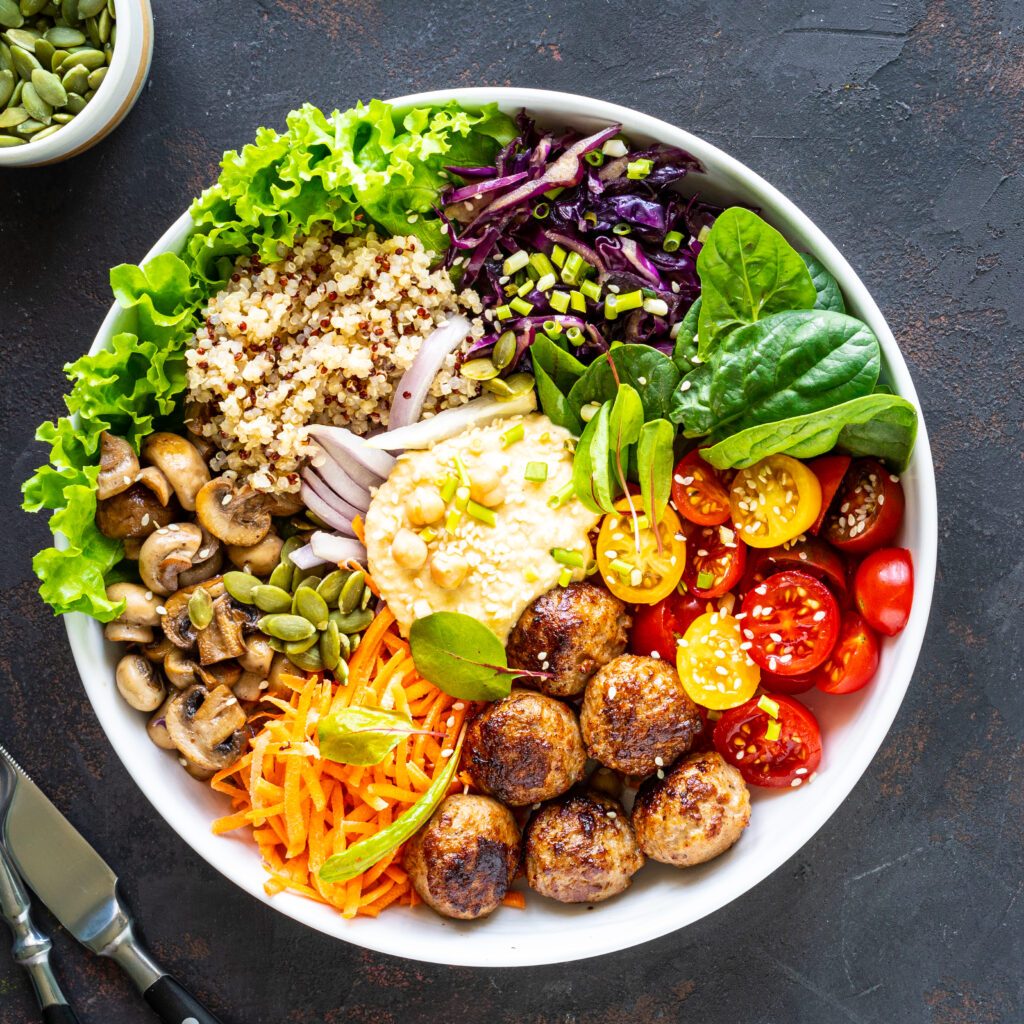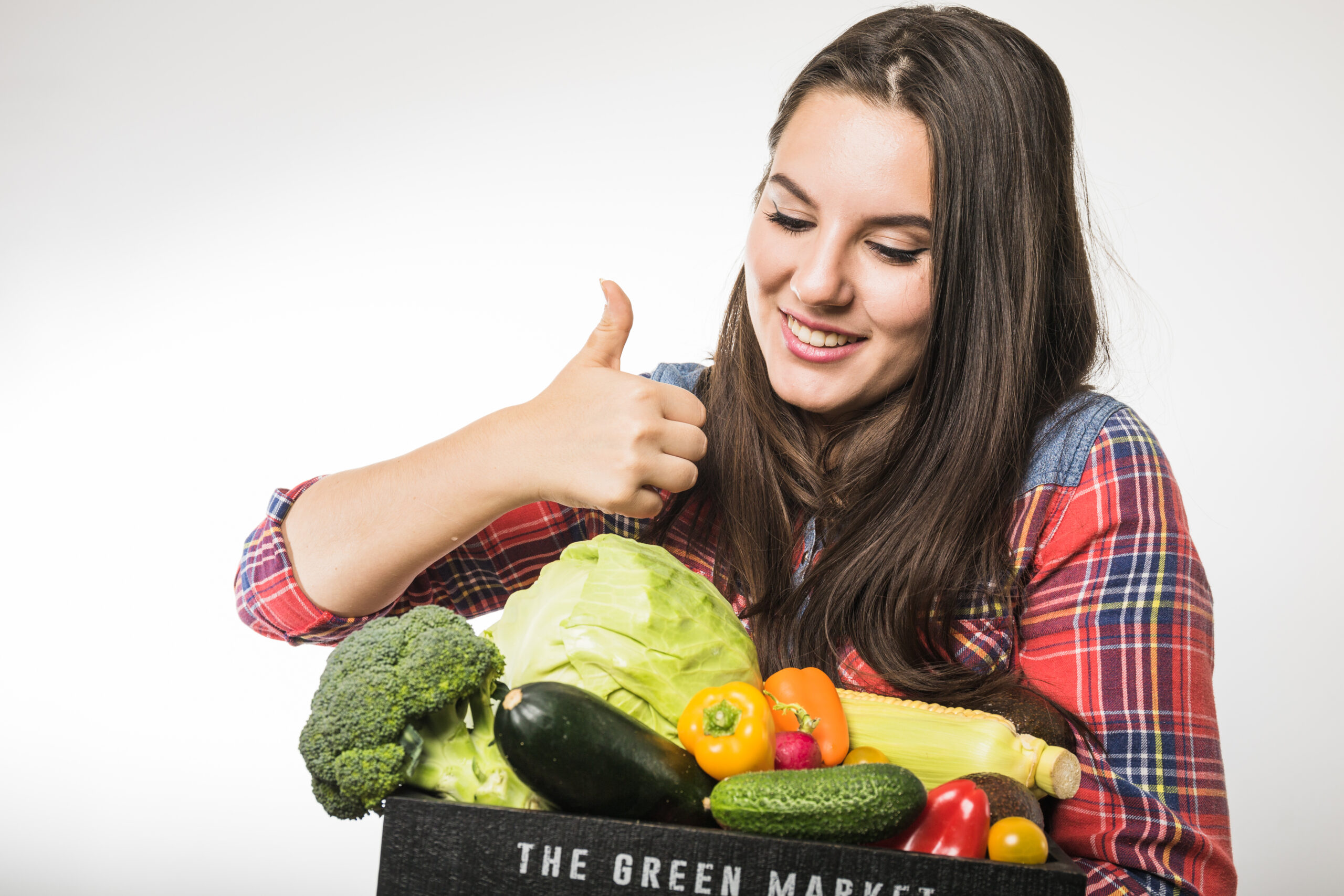Here we are going to share information on the topic “5 Vegan Dietary Tips to Help You Lose Weight.” A study that was published in the Journal of General Internal Medicine states that people who eat a vegan diet for about eighteen weeks lose four pounds more on average than people who eat animal products.
The best thing about a vegan diet is that it doesn’t involve any tricks, tight calorie counting, or mid-afternoon bonking from starvation. And you can consume carbohydrates—unrefined carbohydrates, that is! By using these six suggestions, you can healthily reduce weight and protect the environment and wildlife at the same time.

5 Vegan Dietary Tips to Help You Lose Weight
A vegan diet: what is it?
There was once a time when a healthy, mostly whole-food diet was synonymous with being vegan. These days, veganism encompasses a wider meaning. Perhaps a diet based on what it excludes would better define it than one centered on plants. All animal products—meat, dairy, fish, eggs, honey, gelatin, and any other material that might derive from an animal—are off limits to vegans.
Even with the removal of these meals, veganism remains very popular, especially in light of the advances made in plant-based products in the last ten years. Almost every cuisine that is based on animals has a vegan counterpart. Although these products come from plants and do not contain any animal ingredients, they are not complete foods. A lot of vegan products incorporate substances like methylcellulose, natural flavors, and other kinds of gums and starches that you can’t buy at the supermarket.
What precisely is a vegan diet, then?
Like any diet, it can consist mostly of complete foods like fruits, vegetables, beans, legumes, nuts, and seeds, or it can be something in the middle and contain a lot of fats, sugars, and artificial chemicals. All vegan diets have one thing in common: they don’t include any animals at all.
How much weight is healthy?
This isn’t a straightforward equation. A healthy weight depends on the person and isn’t always indicated by the scale. “A healthy weight is not universally achieved. Furthermore, scale weight can be hazardous because it fluctuates greatly depending on your level of hydration, bowel movements, and menstrual cycle stage. As MCN, RDN, CDE, and Whole30 coach Whitney Stuart notes, “Bodies are unique and can hold different amounts of weight while still being healthy (free of disease).”
Instead of standing in front of the scale, Stuart suggests examining your entire body composition. Basically, it is the percentage of bone, muscle, and fat tissue that makes up your weight. An easy method to examine the precise distribution of muscle, bone, and fat in your body is to get a DEXA scan, or Bioelectrical Impedance Analysis (BIA). According to Stuart, this can assist in determining whether a person needs to increase their muscle mass, decrease body fat, or strengthen their bones.
5 Vegan Dietary Tips to Help You Lose Weight
5 tips for losing weight on a vegan diet
1. Weigh calories versus nutrient density
- Nutrition and weight loss are largely about return on investment. Foods that are high in nutrients yet low in calories are what you should strive for.
- If you follow these, you’ll not only feel full and energized all day long, but you won’t have to worry about tracking calories.
- Vegetables usually have the lowest calorie content and the highest nutritional profile; fruit, whole grains, beans and legumes, and starchy food (squash, potatoes, maize, and oats) are next in line.
- Make these the main component of your meals, and only sometimes eat higher-calorie plant items like avocados, almonds, and seeds.
- “Merely substituting cereal for oatmeal and soyrizo for tofu increases the food’s nutrient density while removing added sugar and inflammatory oil,” adds Stuart.
2. Focus on fiber
- One of the biggest causes of diet failure is persistent hunger. Focusing on foods high in fiber will help you feel full for longer because this important, yet greatly underappreciated, nutrient digests slowly.
- The American Heart Association recommends 25 grams of fiber per day, yet most Americans don’t even come close to meeting this requirement.
- Leafy greens, fruit, legumes (such as beans, lentils, and peas), and oats are examples of foods high in fiber.
3. Limit processed foods
- Although there are many vegan options available, we shouldn’t treat ourselves to non-dairy ice cream or vegan grilled cheeses on a daily basis.
- Instead, we should focus on plants and only indulge in these vegan treats occasionally.
- Sure, those vegan crackers might contain some fiber, but they also probably contain calorically dense oils and other ingredients that could cause weight gain.
4. Train your taste buds
- Let’s be blunt: cravings are bad. Those constant brain messages are another factor contributing to weight reduction failure, along with hunger.
- You can’t completely stop the urges with medication, but you can eventually control them. Your gut microbiota and taste buds are sensitive to the foods you eat.
- Your body will begin to seek out the healthy food you feed it after about six weeks. We assure you that it is a significant test of faith, but it is effective.
- For instance, you most likely disliked a vegan food item or vegetable before you became vegan.
- Though you didn’t enjoy vegan cheese at first, do you now always have it on hand? Brussels sprouts freaked you off, but now you want them every winter? See? Have faith in the procedure.
- Stuart advises, “Give yourself a chance to grow accustomed to food as an adult.” When preparing new meals, I usually advise utilizing a favorite flavor profile. Give a novel dish a well-known flavor. Admire Mexican cuisine? Prepare a fiery tofu scramble.
5. Stock your fridge with healthy foods
- Don’t let impulsive choices dictate what you eat. It’s not necessary to plan ahead or spend hours preparing a Sunday supper, but you should have wholesome foods on hand to avoid ordering vegan pizza.
- Frozen vegetables, quick-cooking grains, pre-chopped lettuce and veggies, canned beans, oil-free hummus, sauces, and an abundance of fruit (you must try cotton candy grapes) are among the convenient foods to have on hand.
- You have no excuse not to eat really tasty plant-based meals if your kitchen is well-stocked.
Clean up your Instagram feed
It is helpful to unfollow accounts that make you crave something or make you feel less confident in yourself, just as you would ignore someone who was sending you bad vibes. It might be time to unfollow that account if you know that you tend to buy something whenever your neighborhood vegan bakery offers a two-for-one bargain (you can always follow them again later).
Eliminate any accounts that give you the impression that you’re inadequate or guilty. While some people may find inspiration and motivation in the images of fit vegan bodybuilders or slender plant-based yogis, these accounts aren’t doing you any good if they make you feel bad about yourself or give you depressing ideas.
Maybe even remove the app from your phone for the first few weeks of your weight-loss journey. You’re worth it, and you’ll succeed if you put your attention on yourself.
Dangers associated with quick weight loss
If you follow a relatively whole-foods-based, plant-based diet and don’t drastically cut back on your calorie intake, you shouldn’t lose weight quickly. It’s important to remember that 3,500 calories equals one pound, even if dietitians contend that losing weight involves more than just balancing calories in and out. You would therefore lose roughly a pound every week if you cut 500 calories from your daily consumption (3,500 calories over a week). This falls within the category of safe weight reduction.
“Rapid” weight loss is defined as losing more than one to two pounds per week, which may be cause for concern. The bounceback is one such risk associated with rapid weight loss. It is nearly impossible to sustain severe calorie restriction and/or intense exercise that drops more than a few pounds per week; eventually, one will reach a plateau.
Frequently Asked Questions
(5 Vegan Dietary Tips to Help You Lose Weight)
Which diet is ideal for weight loss for vegans?
Answer: The good news is that a vegan diet mostly consists of plants, which are high in fiber. Hope continues, “You may wish to focus more on the lower energy fiber-rich plant foods like beans, pulses, vegetables, fruits, and wholegrains if you’re looking to lose weight.”
How can I go vegan in order to reduce weight?
Answer:
- The Obesity Medicine Association: The Vegan Diet and Weight Loss Advice on shedding pounds while following a vegan diet
- Emphasis on Whole Foods: Motivate people to place a higher priority on complete, unprocessed plant foods, including fruits, vegetables, whole grains, legumes, nuts, and seeds.
- Stress the significance of portion management, even while eating plant-based meals.
Which vegan dishes burn fat?
Answer: 5 Vegan Foods That Help You Lose Weight
- 5 Vegan Foods That Help You Lose Weight
- legumes. These are seeds from plants in the family Leguminouseae.
- Complete Grains. One excellent source of carbs is grain.
- veggies. Vegetables are a terrific source of vitamins and nutrients that are good for your overall health; this much is obvious.
- Fruits. Nuts and seeds.
What is the 7-day vegan challenge protocol?
Answer: How does it operate?
- No dairy, eggs, shellfish, meat, poultry, or fowl for seven days (or any seven days in a row).
- Tell your loved ones, friends, and followers that you’re taking on the challenge.
- If you’d like, use the meal planning and recipes on this website.
- After seven days, report back to the public on how the challenge went.
Do vegans have quicker weight loss?
Answer: Here’s what you need to know, from eating less processed food to getting more fiber. A study that was published in the Journal of General Internal Medicine states that people who eat a vegan diet for about eighteen weeks lose four pounds more on average than people who eat animal products.
How can a vegan lose belly fat?
Answer: Vegan Flat-Belly Dinners for 30 Days
Legumes, avocados, potatoes, berries, and other gut-friendly foods high in fiber may help lower visceral fat. You may easily increase your intake of fiber, complex carbohydrates, healthy fats, and other vital nutrients by choosing to eat at least one vegan meal each day.
What is the 7-day weight loss plan?
Answer: You can lose weight in 7 days by consuming fewer processed meals and extra sugars. Increasing your intake of fiber-rich foods and lots of water may also be beneficial. Nevertheless, a variety of factors affect weight loss, so it’s advisable to aim for a slower, more sustainable weight loss of 0.5–2 pounds each week.

Conclusion
(5 Vegan Dietary Tips to Help You Lose Weight)
In conclusion, if mindful eating practices are incorporated into a vegan diet, it can be a successful weight-loss plan. Effective weight management on a vegan diet can be achieved by including more whole foods, placing an emphasis on plant-based protein sources, reducing processed foods, drinking plenty of water, and paying attention to portion sizes.
So, this is how the topic “5 Vegan Dietary Tips to Help You Lose Weight” has been addressed.
For more information related to these topics,
You may also visit our Instagram page by
Thank you!

